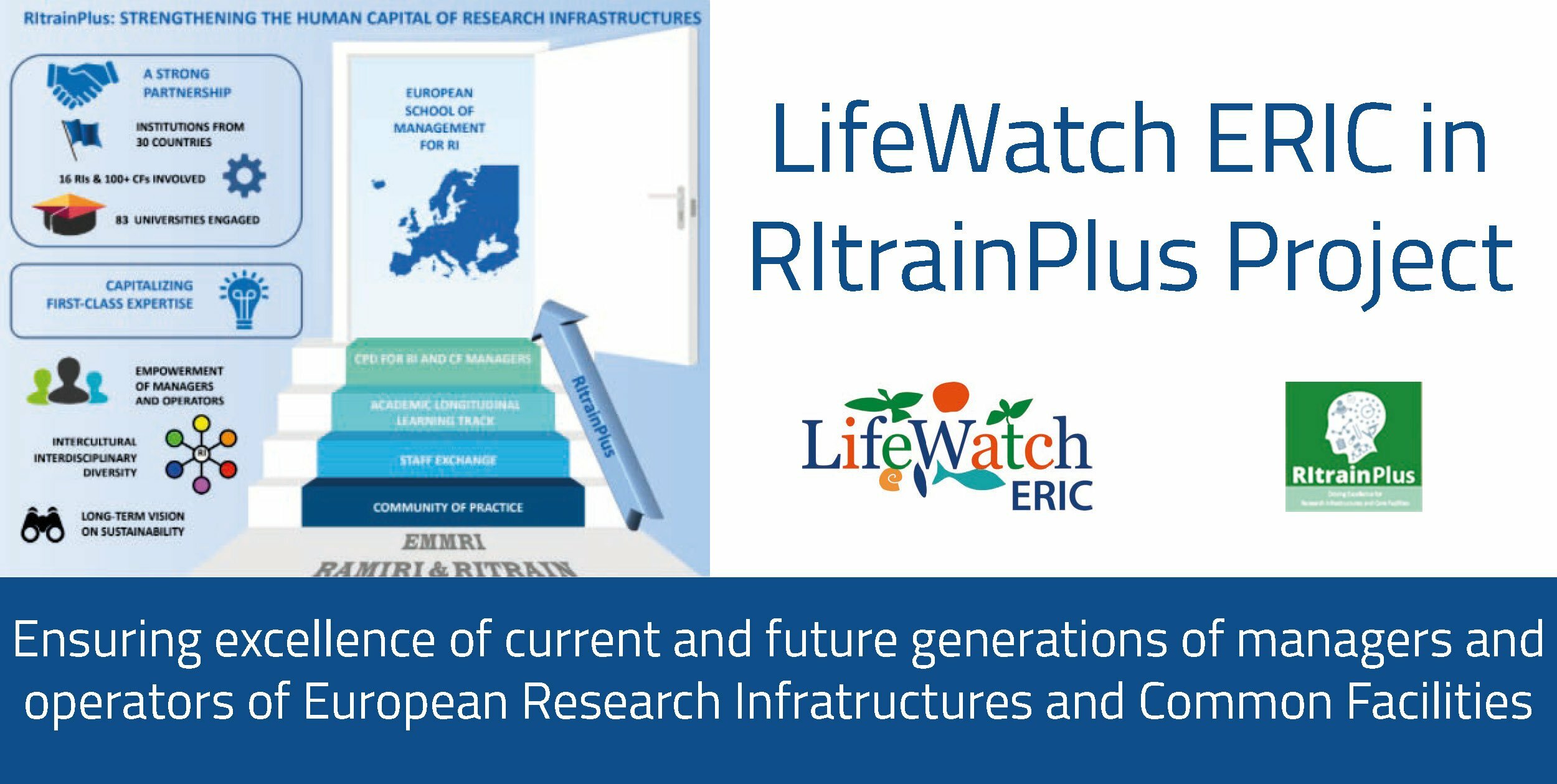
LifeWatch ERIC is pleased to announce its collaboration in the RItrainPlus Horizon2020 project as both a beneficiary and an associated partner.* This project has the potential to bring a great deal of added value to LifeWatch ERIC because of the unique context in which it operates, at the nexus of international scientific and political realities.
But what is RItrainPlus?
RItrainPlus is a project designed to aid Research Infrastructures (RIs) and advanced scientific facilities, ensuring they have the management skills to deal with all aspects of their operation (governance, management, organisational, financial, etc.). The RItrainPlus project will transform the skills-base to drive the professionalisation, efficiency and long-term value creation of European Research Infrastructures and Core Facilities.
What exactly does it do?
In essence, this Project brings together RIs, core facilities, business management schools and European universities, to transform the access and empowerment of human resources for national and international scientific facilities in Europe. Just a handful of its objectives include: providing a coaching programme for managers; connecting RIs to the EOSC and the ERIC Forum; and encouraging staff and knowledge exchange through short-term mobility programmes. In addition, RItrainPlus is looking to establish a European School for Management of Research Infrastructures (ESMRI), a dedicated sustainable training organisation providing specialised training courses and workshops to meet the needs for professional skills in this context.
What role does LifeWatch ERIC play?
The main contribution of LifeWatch ERIC will mainly consist of co-designing a new model of online transdisciplinary RI-related staff CVs, based on Blockchain technologies (using the LifeWatch ERIC “LifeBlock” platform) to facilitate dynamic staff exchange, incentivisation and visibility based on the accounting of distributed activities performed by Research Infrastructures, particularly in the EU-LAC area. The Infrastructure will also contribute to the following tasks, among others: the development of common European policies and learning tracking for curricula enrichment, instructional design methodology, and the production of a trainers’ kit, which will be co-led with UNIMIB. LifeWatch ERIC staff Juan Miguel González-Aranda, CTO & ICT-Core Director (PI), and Elisa Morón-López, ICT-Core Project Manager, attended the kick-off meeting of Work Package 3 “Course development and delivery” on 21 July 2021.
For more information on RItrainPlus, please visit its website.
*grant agreement No. 101008503, duration 2021–2025